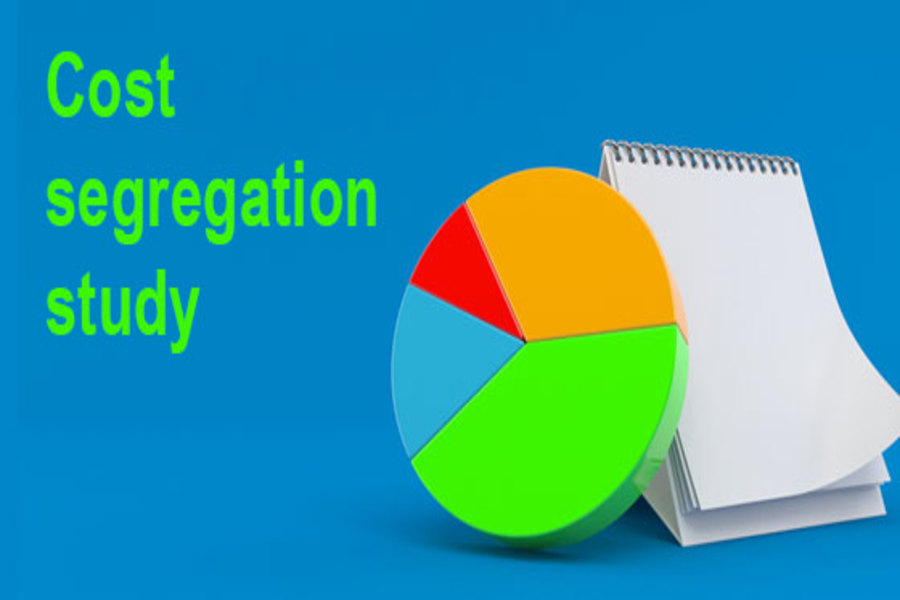Despite the business community’s rapid adoption of digital payment methods, some companies continue to rely on paper checks. But there’s a long-standing problem with checks: They make businesses vulnerable to several damaging types of fraud, including check kiting. Here’s how the scheme works. Riding the float In a check kiting scheme, the perpetrator takes advantage of the “float,” or the time between when a check is deposited and when the bank collects funds on the check. In essence, a bank that accepts check deposits and releases funds immediately provides account holders with interest-free loans. Some unethical businesses take advantage of this process. Although the total number of days it takes banks to process checks and collect funds has declined in recent years, there’s still opportunity to capitalize on...

Are you planning to launch a business or thinking about changing your business entity? If so, you need to determine which entity will work best for you — a C corporation or a pass-through entity such as a sole-proprietorship, partnership, limited liability company (LLC) or S corporation. There are many factors to consider and proposed federal tax law changes being considered by Congress may affect your decision. The corporate federal income tax is currently imposed at a flat 21% rate, while the current individual federal income tax rates begin at 10% and go up to 37%. The difference in rates can be mitigated by the qualified business income (QBI) deduction that’s available to eligible pass-through entity owners that are individuals, estates and trusts. Note that non-corporate taxpayers...
Are you considering a relocating to another state when you retire? Perhaps you want to relocate to an area where your loved ones live or where the weather is more pleasant. But while you’re thinking about how many square feet you’ll need in a retirement home, don’t forget to factor in state and local taxes. Establishing residency for state tax purposes may be more complicated than it initially appears to be. What are all applicable taxes? It may seem like a good option to simply move to a state with no personal income tax. But, to make a good decision, you must consider all taxes that can potentially apply to a state resident. In addition to income taxes, these may include property taxes, sales taxes and estate taxes. If...
With the increasing cost of employee health care benefits, your business may be interested in providing some of these benefits through an employer-sponsored Health Savings Account (HSA). For eligible individuals, an HSA offers a tax-advantaged way to set aside funds (or have their employers do so) to meet future medical needs. Here are the important tax benefits: Contributions that participants make to an HSA are deductible, within limits. Contributions that employers make aren’t taxed to participants. Earnings on the funds in an HSA aren’t taxed, so the money can accumulate tax free year after year. Distributions from HSAs to cover qualified medical expenses aren’t taxed. Employers don’t have to pay payroll taxes on HSA contributions made by employees through payroll deductions. Eligibility rules To be eligible for...
Typosquatting takes advantage of an inclination among internet users known as “fat fingers” — a tendency to hit the wrong keys and enter misspelled trademarks or brands. Like phishing, typosquatting is a type of social engineering that tricks people into visiting websites they didn’t intend to visit. These schemes can harm both consumers and the businesses whose names are abused. Connection to cybersquatting Typosquatting is connected to cybersquatting, where someone registers a site’s domain name that includes a trademark and then tries to profit by selling that name to the trademark owner. With typosquatting, fraudsters register URLs that are common misspellings of company and brand names. For example, a bad actor might register landswnd.com and lnadsend.com. Then, when users try to visit the site of retailer Lands’...
If your business is depreciating over a 30-year period the entire cost of constructing the building that houses your operation, you should consider a cost segregation study. It might allow you to accelerate depreciation deductions on certain items, thereby reducing taxes and boosting cash flow. And under current law, the potential benefits of a cost segregation study are now even greater than they were a few years ago due to enhancements to certain depreciation-related tax breaks. Fundamentals of depreciation Generally, business buildings have a 39-year depreciation period (27.5 years for residential rental properties). Usually, you depreciate a building’s structural components, including walls, windows, HVAC systems, elevators, plumbing and wiring, along with the building. Personal property — such as equipment, machinery, furniture and fixtures — is eligible for...
Corporate espionage has long been a threat for U.S. companies. Recently, intellectual property theft by foreign governments and organized crime gangs has grabbed headlines — for good reason. According to the U.S. Justice Department, 80% of its economic espionage prosecutions target schemes that would benefit China. Yet for most businesses, the threat comes from employees and former employees who take advantage of lax environments with few internal controls. The problem . . . and a solution Employees with access to trade secrets may take that information with them when they leave your company for another job — or pad their paychecks by selling it to your competitors while still employed. As with all types of fraud, workers are more likely to participate in corporate espionage if they’re...
Employers offer 401(k) plans for many reasons, including to attract and retain talent. These plans help an employee accumulate a retirement nest egg on a tax-advantaged basis. If you’re thinking about participating in a plan at work, here are some of the features. Under a 401(k) plan, you have the option of setting aside a certain amount of your wages in a qualified retirement plan. By electing to set cash aside in a 401(k) plan, you’ll reduce your gross income, and defer tax on the amount until the cash (adjusted by earnings) is distributed to you. It will either be distributed from the plan or from an IRA or other plan that you roll your proceeds into after leaving your job. Tax advantages Your wages or other compensation...
The Social Security Administration recently announced that the wage base for computing Social Security tax will increase to $147,000 for 2022 (up from $142,800 for 2021). Wages and self-employment income above this threshold aren’t subject to Social Security tax. Background information The Federal Insurance Contributions Act (FICA) imposes two taxes on employers, employees and self-employed workers — one for Old Age, Survivors and Disability Insurance, which is commonly known as the Social Security tax, and the other for Hospital Insurance, which is commonly known as the Medicare tax. There’s a maximum amount of compensation subject to the Social Security tax, but no maximum for Medicare tax. For 2022, the FICA tax rate for employers is 7.65% — 6.2% for Social Security and 1.45% for Medicare (the same as...
(This is Blog Post #1117)...
- 1
- 2
- 3
- 4
- 5
- 6
- 7
- 8
- 9
- 10
- 11
- 12
- 13
- 14
- 15
- 16
- 17
- 18
- 19
- 20
- 21
- 22
- 23
- 24
- 25
- 26
- 27
- 28
- 29
- 30
- 31
- 32
- 33
- 34
- 35
- 36
- 37
- 38
- 39
- 40
- 41
- 42
- 43
- 44
- 45
- 46
- 47
- 48
- 49
- 50
- 51
- 52
- 53
- 54
- 55
- 56
- 57
- 58
- 59
- 60
- 61
- 62
- 63
- 64
- 65
- 66
- 67
- 68
- 69
- 70
- 71
- 72
- 73
- 74
- 75
- 76
- 77
- 78
- 79
- 80
- 81
- 82
- 83
- 84
- 85
- 86
- 87
- 88
- 89
- 90
- 91
- 92
- 93
- 94
- 95
- 96
- 97
- 98
- 99
- 100
- 101
- 102
- 103
- 104
- 105
- 106
- 107
- 108
- 109
- 110
- 111
- 112
- 113
- 114
- 115
- 116
- 117
- 118
- 119
- 120
- 121
- 122
- 123
- 124
- 125
- 126
- 127
- 128
- 129
- 130
- 131
- 132
- 133
- 134
- 135
- 136











